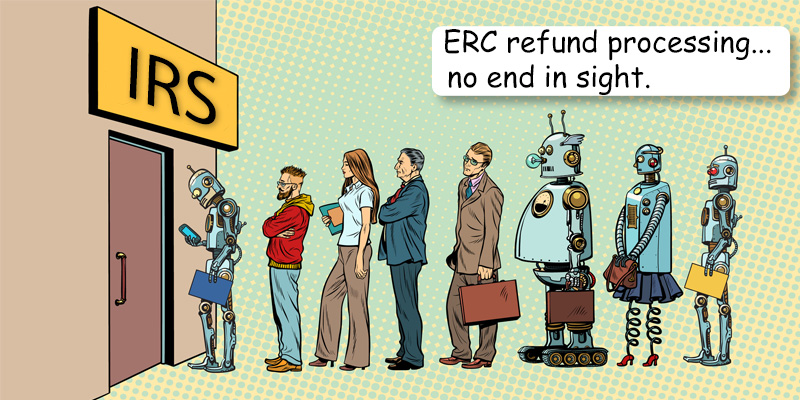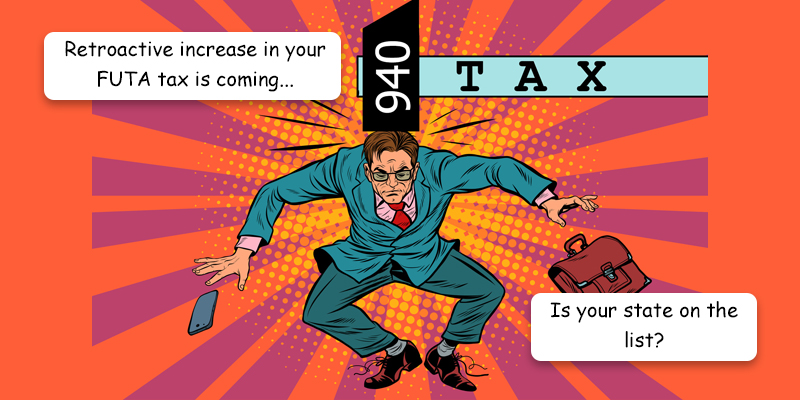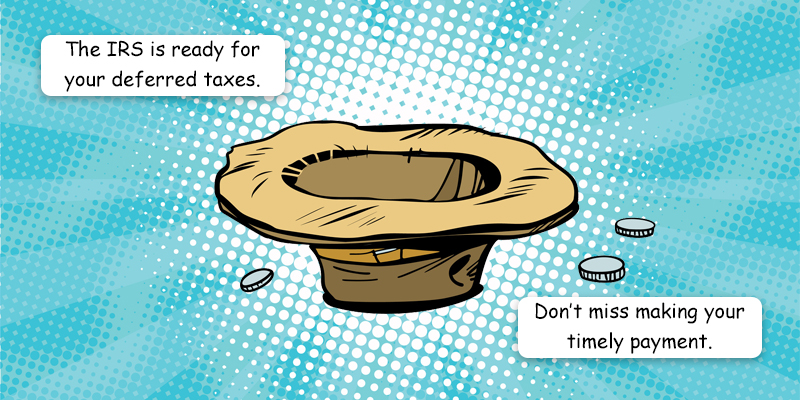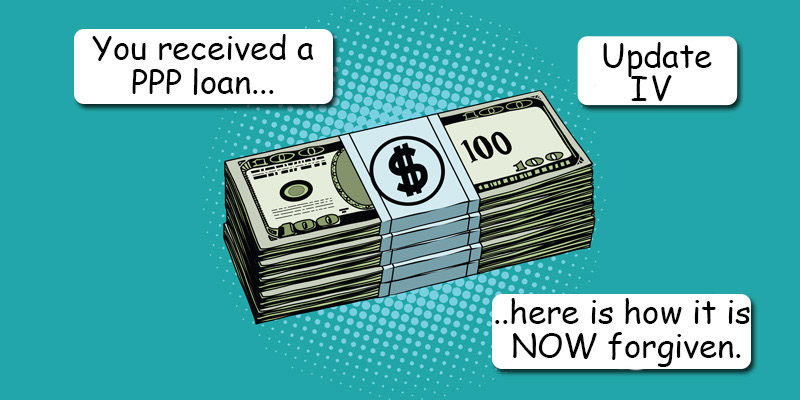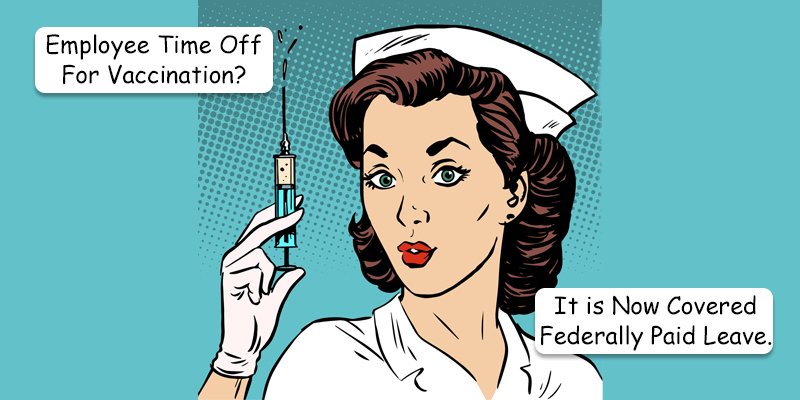There is a fair amount of activity with the IRS-processing Employee Retention (Tax) Credit (ERC) refunds with two announcements this past month. I would call it good news for those who have legitimate claims and bad news for those who filed a not-so-legitimate claim. Actually, not all bad news for the not-so-legitimate claim group. The IRS has reopened the Voluntary Disclosure Program (VDP), which will run through November 22, 2024. As you may recall, this was started earlier this year whereby the IRS allowed you to revoke your claim and return any funds you believe were improperly claimed, keeping 20%…
Posts published in “COVID-19”
Multiple lawsuits have been filed against the IRS, alleging that their lengthy processing time for ERC claims is violating their rights, including one to stop the moratorium that was imposed on new filings made after September 14, 2023. In recent IRS responses to these lawsuits, we have learned new information on how they intend to clear their backlog of 1.4+ million returns they have had as of May 18, 2024. 880,000 of those returns were filed before the moratorium on September 14, 2023, so in essence, the fact there is a moratorium at all, those returns received after that date…
Under the provisions of the American Federal Unemployment Tax Act (FUTA), a federal tax is levied on employers covered by the Unemployment Insurance program at a current rate of 6.0% on wages up to $7,000 a year, paid to a worker. The law, however, provides a credit (basically a discount) against federal tax liability of up to 5.4% to employers who pay state taxes timely under an approved state UI program. Therefore, the employer pays an effective federal tax of 0.6% or a maximum of $42 per covered worker, per year. During times of high unemployment claims, a state may…
The Coronavirus Aid, Relief, and Economic Security (CARES) Act that passed in March 2020 allowed businesses to defer paying their employer share of Social Security (OASDI) taxes through the end of that year. This allowed businesses to hold on to a portion of their tax liability to get through any cash-strapped times caused by COVID-19 and basically, have an interest-free loan for a long period of time. The deferred tax would then become due in two equal installments, with half due on December 31, 2021 and the remainder due on December 31, 2022. Here we are at the start of…
Last December, President Trump signed the Consolidated Appropriations Act of 2021, which included $1.4 trillion to fund the government through fiscal year 2021, as well as a number of important tax provisions. One of the little-known and under-utilized benefits in that Act is the extension of the Work Opportunity Tax Credit (WOTC) through December 2025. The WOTC provides a general business tax credit of up to $9,600 to employers that hire and retain individuals from certain targeted groups, such as veterans, ex-felons, summer youth, SSI recipients, long term unemployed and more. This month, the Internal Revenue Service even reminded employers…
The SBA just announced this week the opening of their Direct Forgiveness Portal at https://directforgiveness.sba.gov/ that will launch on August 4, 2021 for loans of $150,000 or less. The borrower’s bank will need to opt in to this program and so far, over 600 banks have elected to participate. This will enable about 2.17 million borrowers to apply through the portal, which represents 30% of loans $150,000 or less that have not yet submitted for forgiveness. The SBA has put in place a customer service team to answer questions and directly assist borrowers with their forgiveness applications, whether they are…
If you are a business that started after February 15, 2020, you, unfortunately, discovered that there was not much government support available to you. The Paycheck Protection Program (PPP), the Employee Retention Tax Credit (ERC) and other help were only available to businesses that started prior to that date, reason being that the government figured that you knew what you were getting into if you started after that date, therefore, you did not need any relief. On March 11, 2021, President Biden signed the American Rescue Plan (ARP) Act of 2021, which extended support to existing businesses and also included…
While I do not necessarily write about benefits for individuals, this one happens to affect the employer, or should I say, their previous employer, which could be you. The ARP Act allows involuntarily terminated employees under Subtitle F – Preserving Health Benefits For Workers to receive premium assistance on their COBRA. The premium assistance is in the form of 100% paid for health insurance for the separated employee and their dependents for the coverage period beginning April 1 to September 30, 2021. Newly terminated employees just entering eligibility for COBRA are eligible for the premium assistance, as well as those…
The Families First Coronavirus Response Act (FFCRA) was the first COVID-19 Act passed by Congress on March 18, 2020. Back then, the belief was that COVID-19 would be a short-lived inconvenience where an employee may need to take a couple weeks off from work, and this Act was to allow them that benefit without cost to the employer. Here we are, a year later, still feeling the effects. The Consolidated Appropriations Act (CAA) 2021, passed on December 27, 2020, extended this federal paid leave until March 31, 2021, and we now find further extension and expansion in the recently-passed American…


